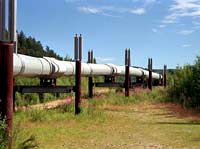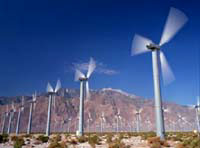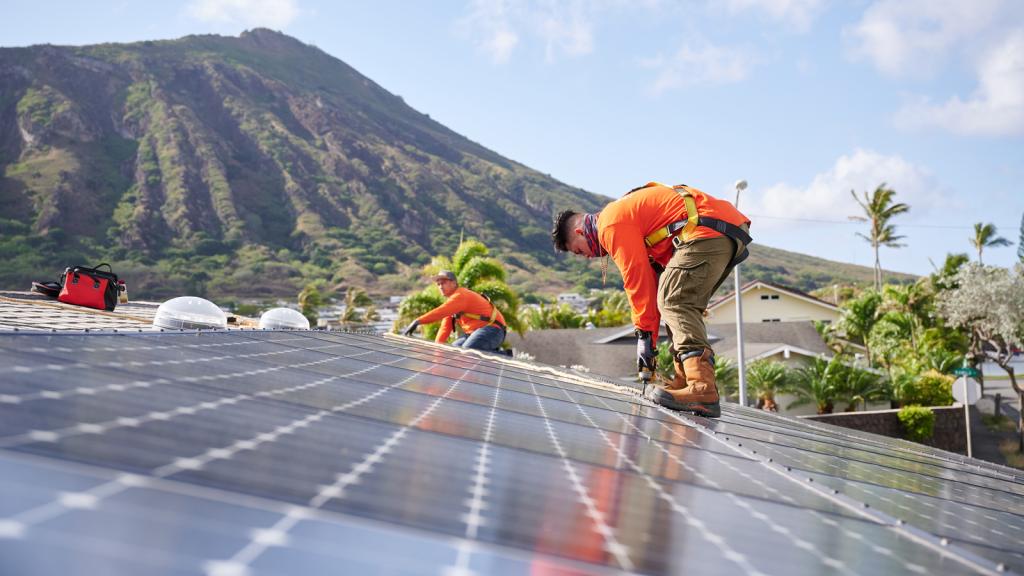California’s energy crisis has become a national Rorschach test, saying more about the viewer than about the ink blot. President Bush is a special case: He looks at the deregulation crisis and sees the need to drill for oil in Alaska’s Arctic National Wildlife Refuge.

Caribou-hoo-hoo.
Photo: USFWS.
Of course, given the number of oil and gas industry veterans in the top ranks of the new administration, Bush might also see the Puff Daddy shooting trial in New York as indicative of the need to drill for oil in Alaska. What none of his political advisors seems to get is that caribou-in-the-Arctic could quickly become Bush’s gays-in-the-military. Pushing forward on drilling in the Arctic Refuge would be a huge blunder based on a misreading of the economics, science, and politics.
The latest evidence seems to suggest Bush and his cronies are itching for a fight: In late February, the drilling proposal was incorporated into a bill introduced by the chair of the Senate’s Energy and Natural Resources Committee, Sen. Frank Murkowski (R-Alaska).
Baked Alaska
The oil companies and — pardon the redundancy — the administration argue that the benefits of drilling in the Arctic Refuge include possibly billions of barrels in untapped oil and gas reserves that could maintain North Slope production and promote use of the Trans-Alaska Pipeline in much the same way that the deep-water drilling boom in the Gulf of Mexico is keeping offshore production robust.

Put this in your Trans-Alaska pipeline and smoke it.
Photo: NREL/PIX.
Environmentalists counter that, by most estimates, oil reserves in the refuge would yield only 180 days’ supply for the nation, an amount which scarcely justifies endangering the health of a fragile ecosystem full of migrating caribou and polar bear birthing grounds (and, though the enviros don’t mention this, billions of vicious biting flies).
Economists like to talk about the trade-off between “utilitarian value” (how much is the oil worth?) and “standing value” (what is the land worth undisturbed in terms of native hunting, wildlife protection, and tourism?). But Harvard economist Robert Stavins has complicated this equation with what he terms “existence value” — the amount someone would pay just to know the land is there, even though he or she might never see or use it.
For many Americans, vast frontier wilderness areas like the Arctic Refuge have measurable and precious existence value. This may help to explain why post-election surveys by both Republican and Democratic pollsters found that two-thirds of Americans want to preserve the refuge and ban oil drilling within it.
Now the oil industry has begun to argue that new exploration and drilling technologies could locate oil reserves in far greater amounts than currently estimated and pump the oil with little environmental impact on the immediate landscape.
But long-term oil production could be more of a reason not to drill, because the argument is no longer just about caribou versus drilling rigs. The latest report from the U.N.’s Intergovernmental Panel on Climate Change, made up of the world’s leading climate scientists, concludes that the burning of heavy fossil fuels like oil is dramatically altering the world’s atmospheric chemistry. The consequent rise in world temperatures — which the IPCC has predicted to be as much as 10 degrees Fahrenheit by century’s end — will generate huge and unpredictable costs resulting from drought, crop failure, sea-level rise, spread of tropical diseases, and extreme weather events. Talk about your Baked Alaska! The latest findings also suggest that the melting of Arctic tundra could itself become a major contributor to future warming.
Is Bush a Stoner?
Klaus Topfler, the German economist who heads the U.N. Environment Programme, has suggested that our need to rapidly transition to a new energy regime could also provide a huge opportunity for economic expansion with the development of low-carbon natural gas and non-carbon renewable energy systems like photovoltaics, wind farms, and hydrogen fuel-cells.

Making electricity from all the hot air.
Photo: NREL/PIX.
Unfortunately, the U.S. is not likely to be a leader in this new technological revolution, at least not if the Bush administration sticks with its present energy strategy of supply-side drilling. Bush’s new budget does provide more than $1 billion for research into solar, wind, and other clean energy sources, but only if the revenue can be generated from exploratory oil drilling in the Arctic Refuge. By this logic, he should fund the war on drugs by placing a user tax on cocaine and heroin.
Although he has acknowledged that climate change is real, Bush has also said that he isn’t sure science has proved a link to human causes. This reminds me of my stoner friend Charlie’s contention that just because he’s sticking to the ground doesn’t mean the laws of gravity are real.
The scientific evidence has become overwhelmingly clear that continuing to burn coal and oil invites global disaster. Environmentalists argue that America should adopt an energy strategy that focuses on a rapid transition to renewable sources while also placing an immediate emphasis on creating energy-efficient cars, trucks, and appliances. That may not sound as sexy as oil exploration, but as Dan Becker of the Sierra Club has pointed out, you’ve never seen an efficiency spill.
Polling has found that 75 percent of voters think climate change is probably linked to more frequent extreme weather events already taking place and that 80 percent believe the government should take immediate action to reduce greenhouse gases. Even new U.S. EPA Administrator Christie Todd Whitman has said we need to begin reducing carbon dioxide emissions — although whether she’s speaking for herself or her boss remains as uncertain as, well, gravity.
If Bush continues to act as if opening the Arctic Refuge to oil drilling is the smart way to go, he can certainly expect to face more than just political heat in the future.


